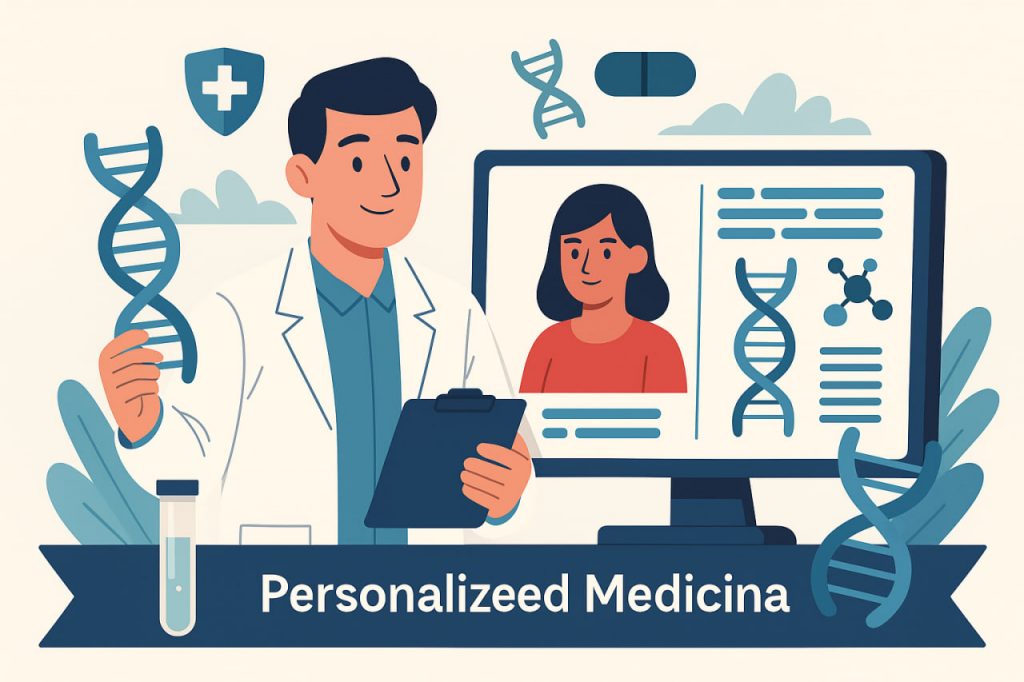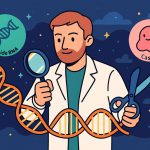Traditional medicine often applies the same treatment approach to all patients with the same condition. However, people differ not just in lifestyle or environment, but also genetically. Personalized medicine — also called precision medicine — uses an individual’s DNA profile to tailor prevention, diagnosis, and treatment strategies. By analyzing a person’s genetic code, doctors can better understand disease risk, drug response, and the most effective interventions for that individual.
What Is DNA Analysis in Medicine?
DNA analysis involves decoding parts of a person’s genome — the complete set of genetic instructions stored in their DNA. This can include:
- Whole-genome sequencing: Reading all the DNA
- Exome sequencing: Focusing on genes that code for proteins
- Pharmacogenomic testing: Understanding how genes affect drug response
- Targeted gene panels: Looking for mutations linked to specific diseases (e.g., BRCA1/BRCA2 for breast cancer)
These techniques help identify genetic mutations, inherited conditions, and unique biological traits that influence health.
How Personalized Medicine Works
- Genetic Testing: The patient provides a saliva or blood sample for DNA extraction.
- Sequencing and Analysis: The sample is processed using bioinformatics tools to identify variations.
- Interpretation: Genetic counselors and doctors evaluate the data in context of health risks or current disease.
- Customized Plan: Treatments are adjusted based on the person’s genes — including drug type, dosage, and preventive measures.
Applications of Personalized Medicine
1. Oncology (Cancer Treatment)
- Tumor sequencing can reveal specific mutations that make cancers vulnerable to targeted therapies.
- Example: HER2-positive breast cancer is treated with drugs like trastuzumab.
2. Pharmacogenomics
- Not everyone metabolizes drugs the same way. Genetic testing helps avoid adverse drug reactions and ineffective treatment.
- Example: Variants in the CYP450 genes affect how individuals process antidepressants or blood thinners.
3. Rare and Inherited Diseases
- Children with unknown illnesses can be diagnosed through whole-genome sequencing, revealing rare disorders.
- Helps detect inborn errors of metabolism, neurological syndromes, or autoimmune conditions.
4. Preventive Medicine
- Individuals at high risk (e.g., carriers of BRCA mutations) can undergo early screenings or lifestyle changes.
- DNA testing can also inform nutritional or fitness planning based on metabolic traits.
Benefits of DNA-Based Personalized Care
- Earlier and more accurate diagnosis
- Higher treatment success rates
- Fewer side effects
- Lower long-term healthcare costs
- Empowered patients who understand their own biology
As genetic testing becomes more accessible, medicine is shifting from reactive to predictive and proactive.
Challenges and Ethical Considerations
- Data privacy: Storing and securing sensitive genetic information is critical.
- Equity: Genetic testing is still more available in high-income countries.
- Interpretation complexity: Not all genetic variants are fully understood yet.
- Psychological impact: Learning about one’s genetic risks can be emotionally difficult.
- Insurance discrimination: Concerns about the use of genetic data in coverage decisions.
To address these concerns, laws like GINA (Genetic Information Nondiscrimination Act) have been enacted in some countries.
The Future of Personalized Medicine
In the coming years, DNA analysis will likely be routine in clinical settings. Combined with AI, big data, and wearable health tech, personalized medicine will create real-time, adaptive care plans for each person — marking a new era in human-centered healthcare.
Glossary
- Genome: The full set of genetic material in a cell
- Mutation: A change in DNA that may affect health or traits
- Pharmacogenomics: The study of how genes affect drug response
- BRCA1/2: Genes associated with breast and ovarian cancer risk
- Precision medicine: Healthcare tailored to individual genetic profiles


